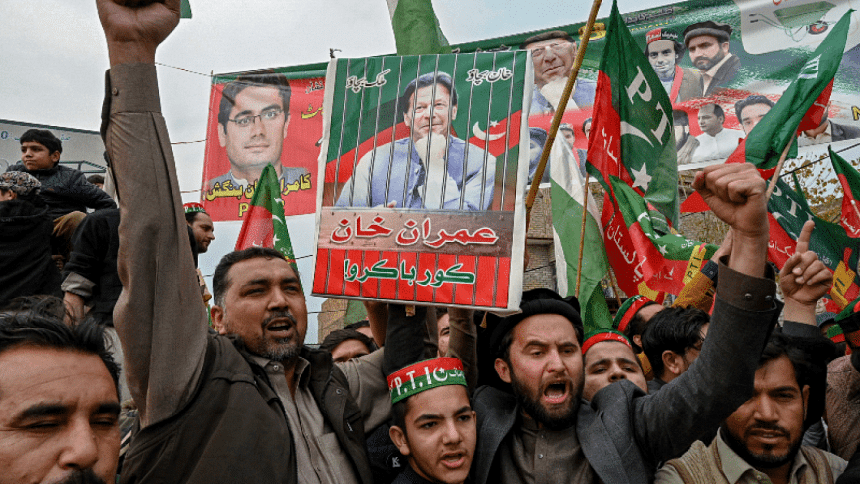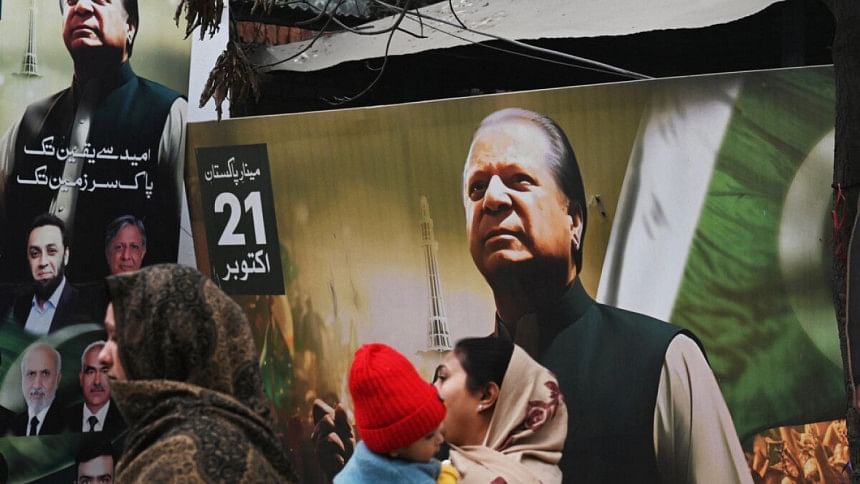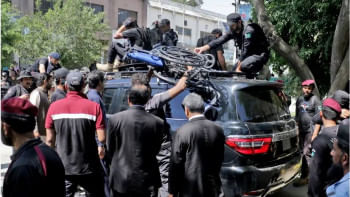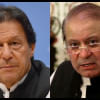Pakistan elections 2024: Recurring rigging

National elections are supposed to rejuvenate nations every four to five years as competing political parties sell their ideas to the masses and the winners form a government with a fresh and strong mandate to take the country forward. But as Pakistan's election date of February 8, 2024 comes closer, a new controversy every other day is casting the dark spectre of massive election rigging by Pakistan's all-powerful security establishment over them.
The 1970s elections were its freest ones in terms of pre-election and election-day processes. However, their legitimacy was lost when power was not handed over to Awami League. Since then, the parliamentary system has become entrenched and 10 more parliamentary elections have been held until 2018. But almost all of them were rigged to some extent.
Pakistan's electoral history unfortunately is replete with such rigging by its security establishment. None of its national elections held till date have been fully free and fair. Pakistan has spent over a decade under direct army rule. Even when national elections were held subsequently, they were usually rigged in one way or the other. During the first 25 years of its existence from 1947 to 1972, election delays, manipulation of the electoral college and dubious appointments and removals of prime ministers and heads of state were the main modes of election rigging. The main impetus for rigging in this era was the fear of the numerical majority of Bangalees in then East Pakistan.
The 1970 elections with universal adult franchise marked an end to this era of indirect elections. These elections were its freest ones in terms of pre-election and election-day processes. However, their legitimacy was lost when power was not handed over to Awami League. Since 1970, the parliamentary system has become entrenched and 10 more parliamentary elections have been held until 2018. But almost all of them were rigged to some extent by the security establishment according to the European Union and other credible sources. The only exceptions were the 1988, 2008 and 2013 elections—the last one representing the only free and fair civilian transfer of power from one fairly elected party to another in its history. This was partially due to the constitutional adoption in 2010 of a neutral caretaker system for holding elections.

However, the momentum and hope of free elections generated by the 2008 and 2013 elections were dashed in 2018 when the security establishment rigged elections again following increasing tensions with the incumbent Nawaz Sharif's party because of the latter's desire to pursue peace with India and end the establishment's policy of supporting Jihadi groups regionally. This led to the installation of Imran Khan's Pakistan Tehreek-e Insaf (PTI) into power, leading to a hybrid regime where strategic power largely resided with the establishment. It was only a matter of time before the security establishment fell out with Imran Khan too, who lost power through a non-trust move by the opposition in April, 2022. The main reasons for the fall-out with Imran Khan were his poor governance, his bad ties with all major foreign allies and tensions with the army chief. This means that no prime minister in Pakistan's history has ever completed a full five years of rule—most being removed through palace intrigues by the establishment.
Following his loss in the no-trust move, Imran Khan launched a tirade against the new government, the army leadership and the US, blaming them for conspiring to remove him from power, leading to further tensions with the army. Things came to a boiling point when his supporters attacked army installations in many cities in May 2023, following Imran's arrest in a corruption case. This led to a major crackdown on PTI and hundreds of its leaders and workers were arrested and dubious cases were lodged against its top leadership who were jailed without convictions for long. Other middle-cadre leaders and workers have been forced or induced to desert PTI, often after their incarceration or disappearance and subsequent freedom. There are obstructions in the way of PTI's free electioneering as reported regularly by media and social media. In a first, PTI has even been deprived of its election symbol (the iconic bat keeping in line with Imran Khan's cricket career) unfairly which may open the doors for forced desertion of its independently running candidates to other parties. Imran Khan himself has been convicted and jailed in two dubious cases for a total of 24 years.
The 2024 elections look set to be more rigged than 2018 and 1990s ones and at par with the 2002 and 1985 elections, which were held under army rule. The establishment has honed its rigging skills so much that it can now carry out the same level of rigging even under constitutional rule. Opinion polls show that no party is likely to get a majority in the national assembly and a weak coalition government led by Nawaz Sharif's party may rule without a strong and credible mandate. Its thin majority and dubious mandate will hobble and render it unable to deal with huge economic, security and foreign challenges that Pakistan faces. This will just strengthen the hands of the army and its ability to control policy from behind the scenes, whose policies earlier led to the 1971 partition, the spread of terrorism and extremism and continued tensions with neighbouring states.
The economy has been suffering from inflation and low growth for a long while; the security situation is deteriorating due to increased terrorism by the Afghanistan-based Pakistani Taliban and Baloch militants fighting for freedom. Pakistan is following behind within South Asia, especially Bangladesh, even though before 1970, the western wing was ahead of the eastern wing due to Pakistan's discrimination against the eastern wing.
Pakistan's huge social, economic, foreign and security failures are linked to its political failures. These political failures are clearly linked to issues of lack of political illegitimacy due to rampant election delays and rigging. The 2024 elections look set to perpetuate that cycle of political illegitimacy and massive problems in all other domains. For this sorry state, the blame largely goes to the security establishment.
Dr Niaz Murtaza is an Islamabad-based political economist with a PhD from the University of California, Berkeley. He writes extensively in Pakistani newspapers. He can be reached at [email protected]. X account is @NiazMurtaza2
Views expressed in this article are the author's own.
We welcome your contributions and analysis of global events. To submit articles to our weekly page, Geopolitical Insights, please send an email to [email protected]
Follow The Daily Star Opinion on Facebook for the latest opinions, commentaries and analyses by experts and professionals. To contribute your article or letter to The Daily Star Opinion, see our guidelines for submission.

 For all latest news, follow The Daily Star's Google News channel.
For all latest news, follow The Daily Star's Google News channel. 






Comments